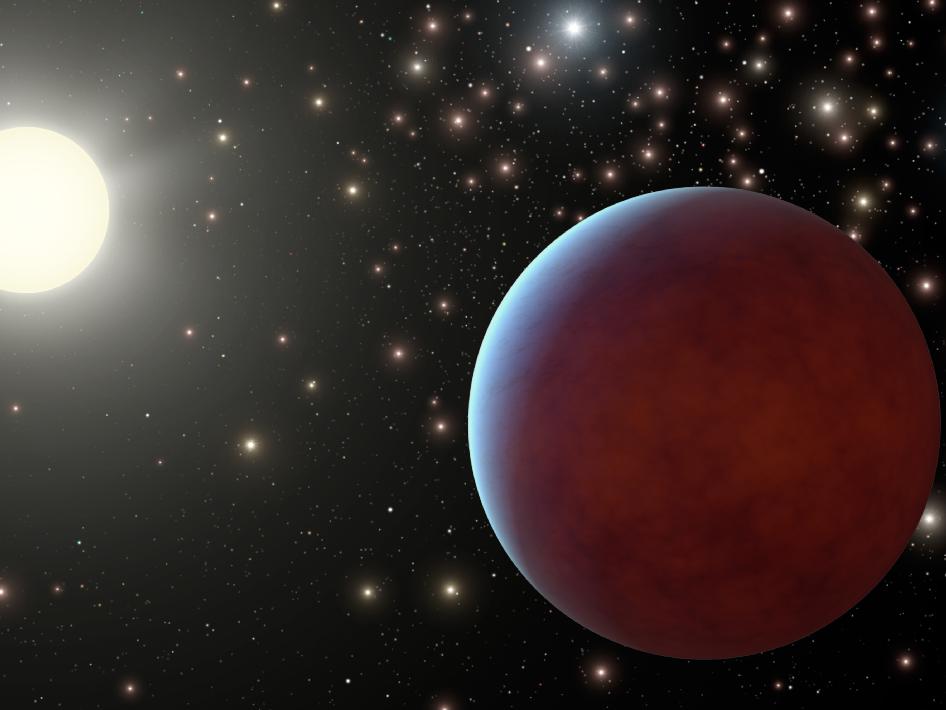Astronomers announced last week (September 14, 2012) they have discovered two gas giant planets orbiting sunlike stars in one of the sky’s most famous star clusters – a collection of about 1,000 tightly packed stars – called the Beehive. This cluster has been visible in September 2012, in the predawn sky, near the sky’s brightest planet Venus. The planets are the first ever found around sun-like stars in a cluster of stars.

Gas giant planets in a star cluster like the Beehive would not be habitable. But if you could orbit in a spacecraft around one of these worlds (as gas giants, they’d have no solid surface to stand on), you could gaze up from these worlds toward a sky filled with many bright stars. That star-filled sky is illustrated in as illustrated in the artist’s concept above. A gas giant planet is shown to the right of its sun-like star, and all around, the stars of the Beehive cluster shine brightly in the dark.
Read more from NASA about the discovery of gas giant planets in the Beehive
The Beehive cluster – located within the boundaries of our constellation Cancer – is in our sky for much of every year. In September 2012, this cluster has been been near the planet Venus before dawn. On September 12, it was located to the left of Venus, as shown in Ken Christison’s nice photo above. Tomorrow morning – or for the rest of September 2012 – if you looked east before dawn, you’d easily see Venus shining brightly there. The Beehive would be above Venus. You might need to sweep for the cluster with binoculars!
Bottom line: Astronomers announced on September 14, 2012 that they have discovered two gas giant planets orbiting sunlike stars in the famous Beehive star cluster.











